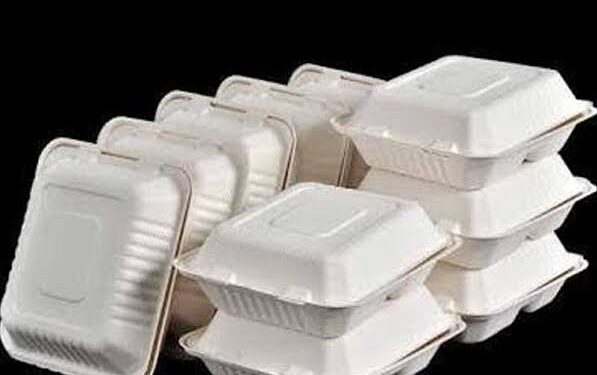The Lagos State government has announced its ongoing commitment to enforce the ban on Styrofoam food containers and single-use plastics (SUPs). The government is promising “actionable strategies” to tackle the environmental disaster that these materials represent. But let’s not forget, they’ve been part of the problem for decades—allowing the waste to pile up while turning a blind eye to the obvious consequences. Now, they’re suddenly on a mission to fix the mess.
At a one-day stakeholders workshop in Ikeja, Tokunbo Wahab, Commissioner for the Environment and Water Resources, who was represented by Special Adviser Engr Kunle Rotimi-Akodu, spoke about finding ways to implement and sustain the ban. According to Wahab, Lagos generates over 13,000 tonnes of waste daily, much of which is made up of SUPs and Styrofoam. These materials are infamous for taking up to a thousand years to degrade, and a recent study even found microplastics in human fetuses and bloodstreams.
In January 2024, the state government finally pronounced a ban on Styrofoam and SUPs, citing the need to protect human health and the ecosystem. While the Styrofoam ban came into effect in February 2024, the government has granted an extended moratorium on SUPs until the end of the year, following stakeholder appeals. The complete ban on SUPs is set to take effect by January 2025, but given the track record, who knows if they’ll actually stick to that deadline?

The government claims it’s determined to provide alternatives for Styrofoam containers and has acknowledged the transition won’t be easy. Issues like the cost of alternative packaging and changing consumer behavior are expected to pose challenges, but Wahab assures that Lagos is ready to enforce its plastic policy and support research into new technological solutions. However, one can’t help but wonder—why weren’t these challenges addressed years ago?
Wahab further noted that plastic pollution in Lagos has already led to clogged waterways, poor air quality, and long-term health risks for citizens. While these are undeniable facts, the sudden urgency to ban plastics rings hollow after years of inaction. Still, the state is presenting this ban as a critical step toward sustainable waste management and improved quality of life.
In his address, Permanent Secretary Gaji Omobolaji Tajudeen acknowledged that plastic waste management is one of the biggest environmental challenges Lagos faces. The state government is keen to avoid damaging the interests of businesses in the environment sector, but at the same time, they insist they will not shirk their responsibility to maintain a clean and sustainable environment.
Lagos’s push for a plastic-free future sounds promising, but the reality of enforcement and long-term commitment remains to be seen. This initiative, while noble on paper, is an uphill battle that the state has barely begun to fight.

















